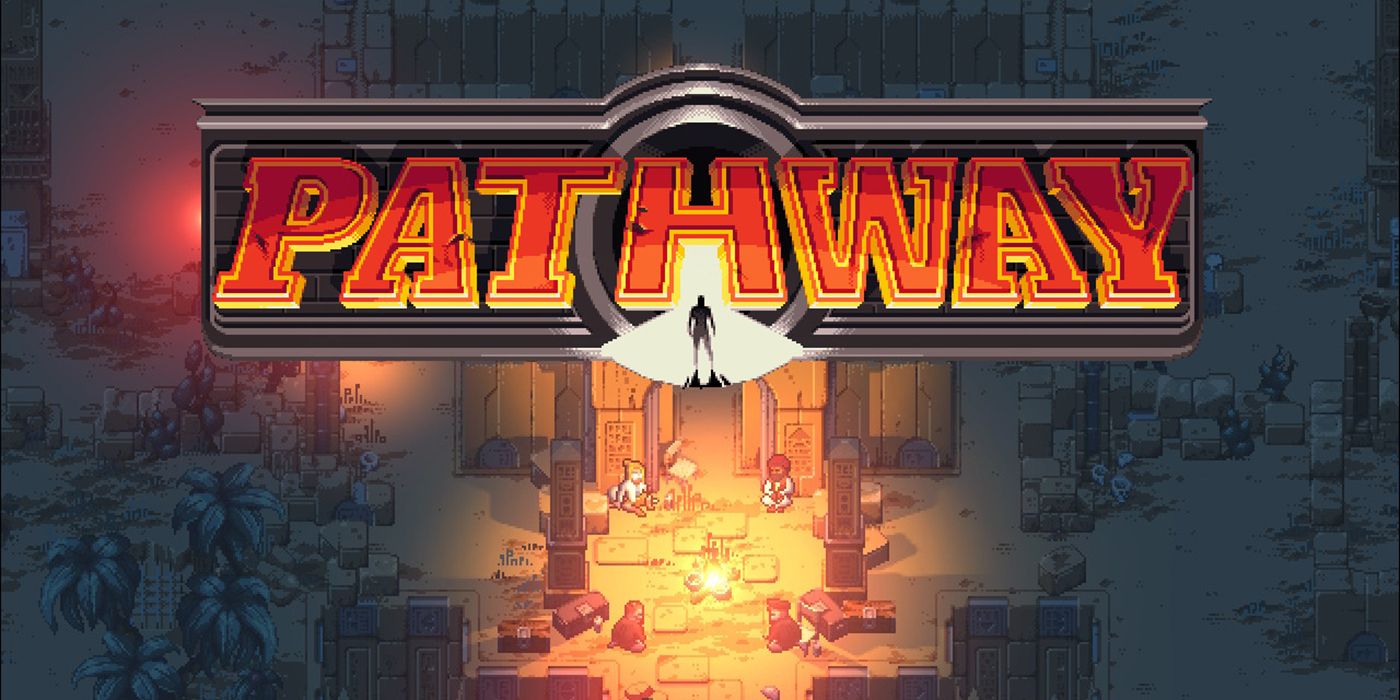
Developed by Robotality and published by Chucklefish, Pathway originally launched on PC in 2019 and will soon release on Nintendo Switch. The console version benefits from a few updates spurred by the feedback of PC players and therefore generally provides a better gameplay experience. Despite the tweaks and bug fixes, however, Pathway still feels lacking in a way that is difficult to pinpoint.
The premise is promising enough: a turn-based strategy game combined with roguelite elements that offers the excitement and adventure of an Indiana Jones film. The game is set in the same era, the mid-1930s, in Europe and Middle Eastern deserts filled with Nazis seeking the same coveted treasures as the player. It's a race to see who can collect intel, scour abandoned temples, and uncover secrets. Along the way, there will be tombs to raid, traps to avoid, strange artifacts to discover, and of course many hostile encounters with Nazis.
The story is divided into five procedurally generated campaigns or adventures of increasing difficulty, each with a different underlying narrative. These adventures are composed of nodes on a map, and the player moves from node to node to reach the culmination of the campaign’s story. Almost every node has some interactivity, which is recounted via text and minimalist pixelized animations. Some nodes give only a brief and somewhat pointless description of the surrounding area, but the majority lead to a story event or combat.
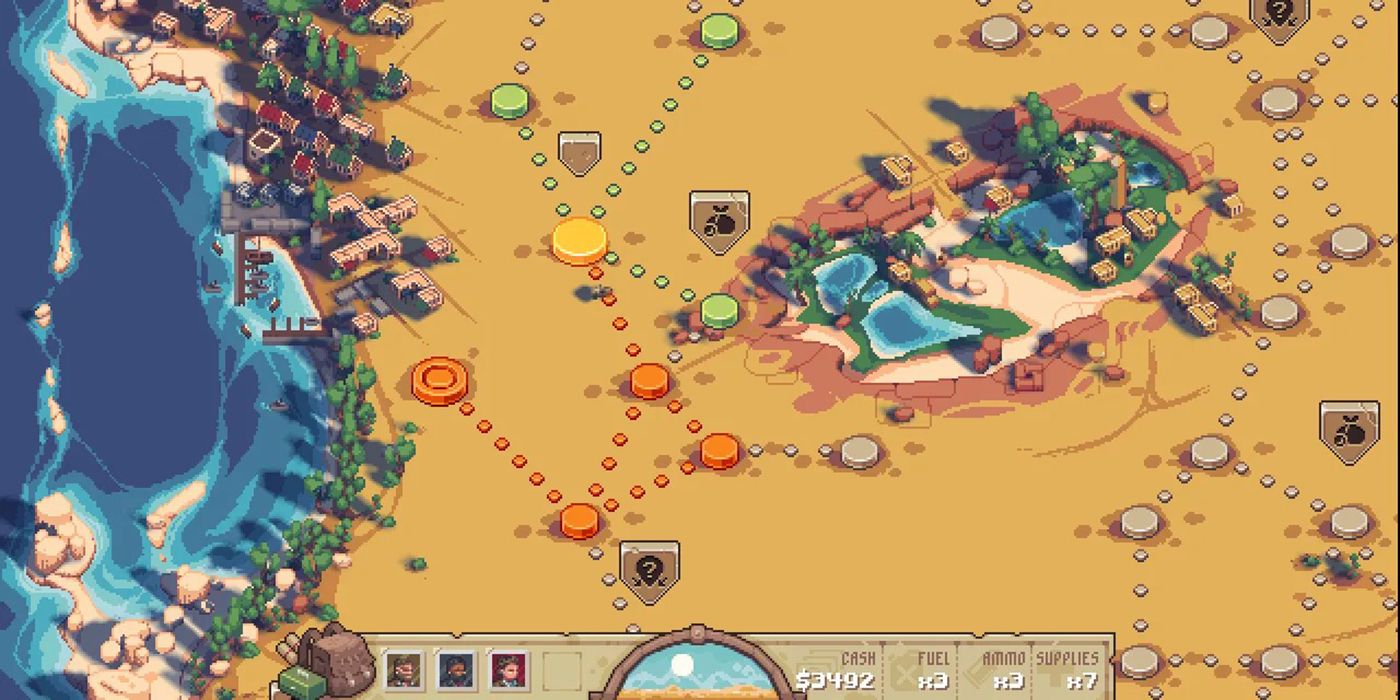
Pathway’s graphics are pixel and voxel-based, giving the game a charming 16-bit retro feel with enhanced shadows and lighting. While the style won’t appeal to every player, it's actually not the visuals that hold the game back, but the presentation. For some people, the story unfolding through text won't be enough to engender excitement or interest, no matter how well written. In fact, after reading 5 or 10 of the text-based interludes, it's probable that many players will start to only skim and not actually read.
Note that the word “story” is used loosely. Fans of in-depth, heavily story- and turn-based games would be better served playing XCOM 2 by Firaxis Games or Mutant Year Zero, both of which are available on the Switch. The foundation of those games is the narrative. Gameplay, graphics, and all the little details rest on that foundation, and a game of this type doesn’t hold together without a strong story. Pathway is lacking any kind of compelling narrative. Sure, there’s the underlying theme of Indiana Jones, fighting Nazis, and raiding tombs, but it’s merely superficial.
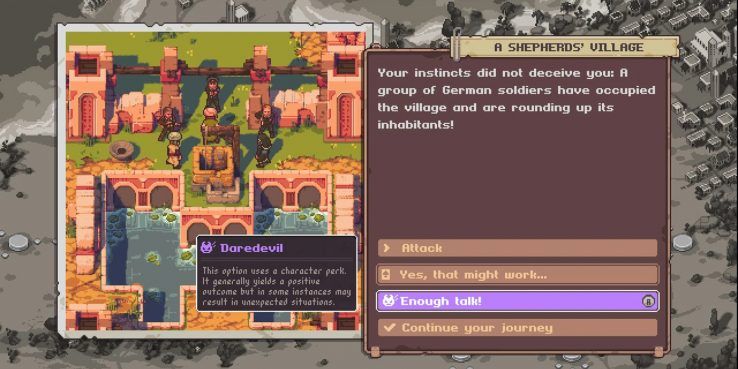
The developers have stated that there are over 400 unique events that can be triggered at each node on the campaign map, but somehow the same ones occur repeatedly. The text blurbs begin to sound the same, locations begin to look the same, and players will soon discover that none of the events have any effect on the story. What happens in one node changes nothing anywhere else. Some events require having a character with the requisite skill to proceed, such as brute strength or intimidation. But if that character is not in the party, there isn’t any repercussion other than missing out on some loot. Besides the rewards received after encounters, moving from node to node is very unimpactful. And that's a weak point in a game whose primary gameplay mechanic centers on traveling from node to node.
The player doesn’t ever feel involved or invested in what’s happening in the game, and many, if asked, probably wouldn’t be able to recount the objectives for the different campaigns. No real story means nothing is tied together; there’s no impetus driving the player forward. And there’s no sense of urgency or excitement, even though the first adventure centers around rescuing a comrade who has been captured by Nazi soldiers and will soon be executed. There is no feeling of purpose other than reaching the final node on the map that completes that particular campaign, often anticlimactically.
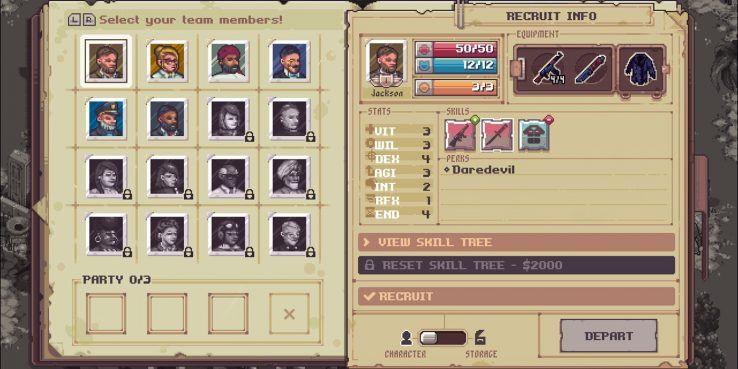
That being said, Pathway is a good way to pass the time since doesn’t demand a lot of thought and is quite entertaining for a while. There are 16 characters with different strengths, weapon and armor skills, and perks like engineering or daredevil. Though some of the characters share perks and attributes, creating redundant and weaker clones of others, they are decently varied. Some use assault rifles, others are snipers, and a few like to get up close and personal with a knife. And because the party is limited to four, it can be a fun challenge to choose whom to bring along.
Ultimately, besides a strong story, the success of a turn-based strategy game will hinge on its combat, and Pathway provides engaging action for a few hours at least. The introductory adventure may seem a bit grueling because encounters are more difficult due to lack of gear and skills, and the party will often be near death. Indeed, the first two or three attempts might end in failure, and this is unfortunate because some players may become disillusioned and not stick it out long enough to realize that the game gets easier.
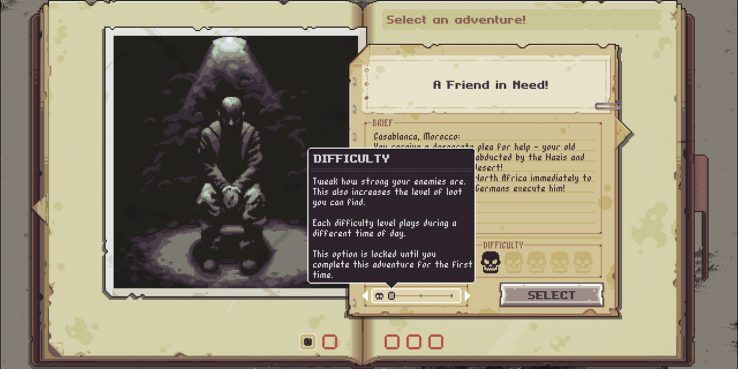
In fact, it becomes almost too easy. Because Pathway has roguelite elements, earned experience and gear remains even after a party wipe, making subsequent attempts less challenging. There are also difficulty sliders to customize how much fuel and ammo the party starts with and the number of enemies encountered in combat. So while the difficulty curve may be high at first — ironically when it should be lowest — it drops rather quickly, which will force some players to manually try to make it tougher.
As for the combat itself, it’s fairly standard turn-based fare, albeit diluted. There’s cover, overwatch, hunkering down, action points, but nothing groundbreaking. One frequent frustration is that the game engine automatically aims at the closest target. This often leads to accidentally shooting explosive barrels, for example, rather than people. This is not something that one should have to constantly keep in mind and, while seemingly minor, it’s one example of why the game gives a general feeling of dissatisfaction.
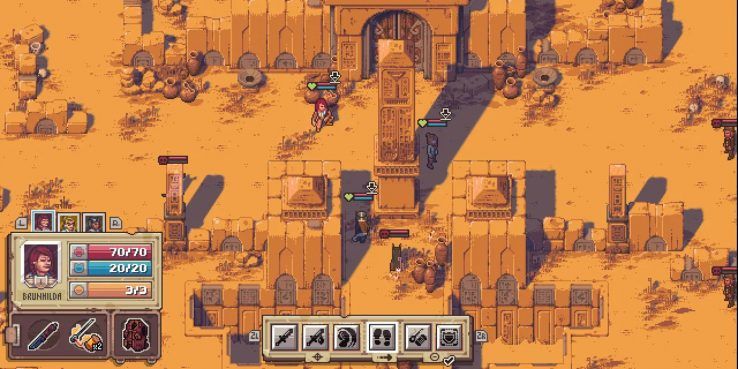
Even without that small frustration, combat soon begins to feel familiar. Every battle plays out similarly, taking place on what seems like the same five maps over and over. Maybe some combat screens are more green and others are more brown, maybe the enemies change clothing every now and then. But every encounter becomes rote, with no real effort or thought required to come out on top, often with no damage taken. Add onto that the fact that the game still experiences crashes, including three soft crashes that caused the game to stop responding to controller input and one hard crash to the home screen of the Nintendo Switch with an error message.
Pathway overall feels like a lite version of a turn-based game, and the monotony sets in fairly quickly. There are no plot twists to keep the story engaging, because there really is no story but rather the shallow foundation of one. Although the game can be beaten in 10 to 20 hours, it's questionable whether many gamers will see it through to the end. It may suck players in for a while, but the game simply is not dynamic enough to maintain interest long term. In the end, Pathway feels all the more dissatisfying because it had such potential. Robotality’s creation can be compared to an itch under the skin that can almost be scratched, but not quite.
Pathway is available on PC and releases for Switch on May 27, 2021. Game Rant was provided a Nintendo Switch code for this review.

